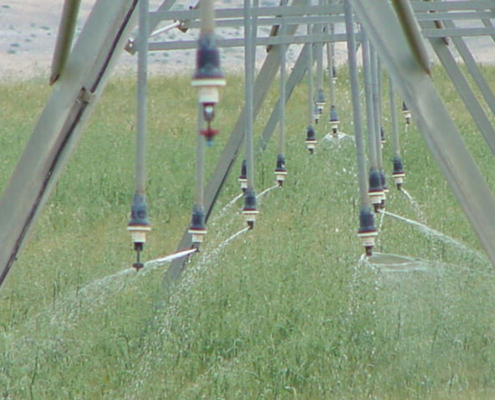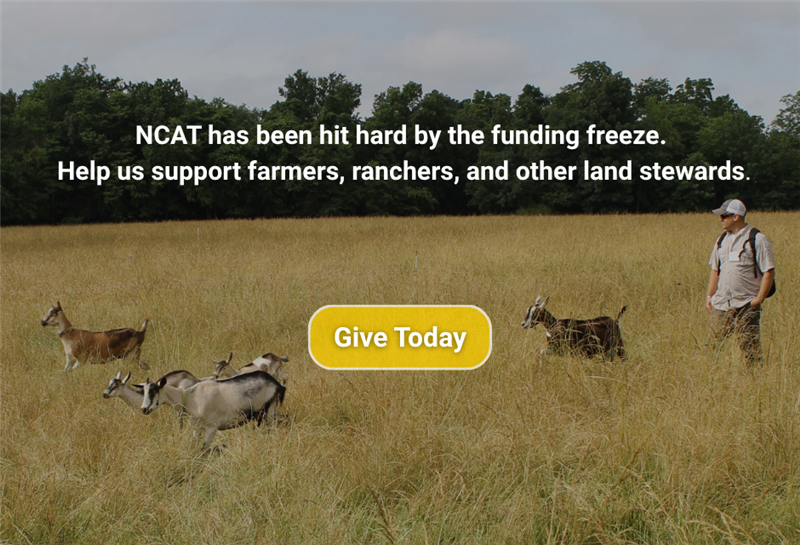Tag Archive for: Water
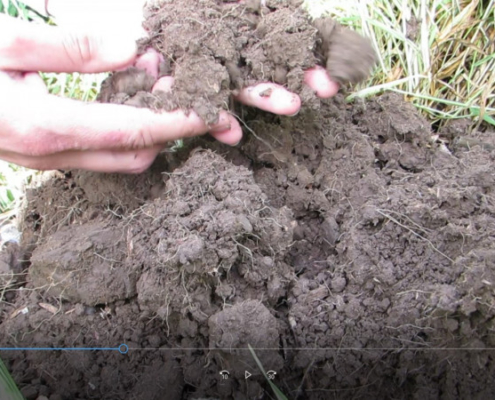
Soil Health 101: Principles for Livestock Production
In this webinar, NCAT Sustainable Agriculture Specialist Nina…
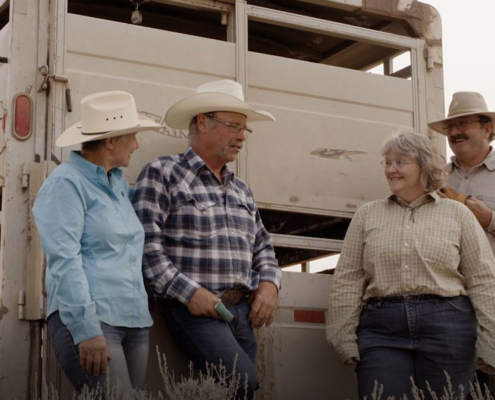
Episode 241. NCAT’s Soil for Water Project to Connect a Community of Regenerators
The National Center for Appropriate Technology has officially re-launched its Soil for Water project, opening access to the free, voluntary network to all commercial farmers, ranchers, and land managers across the United States. Soil for Water aims to connect farmers, ranchers, and land managers who are interested in land management practices that improve soil health, catch more water in soil, reduce erosion, sustain diverse plant and animal life, and filter out pollutants all while sustaining a profitable business.
NCAT Communications Director Emilie Ritter Saunders and NCAT Regenerative Grazing Specialist Linda Poole
NCAT Communications Director Emilie Ritter Saunders and NCAT Regenerative Grazing Specialist Linda Poole
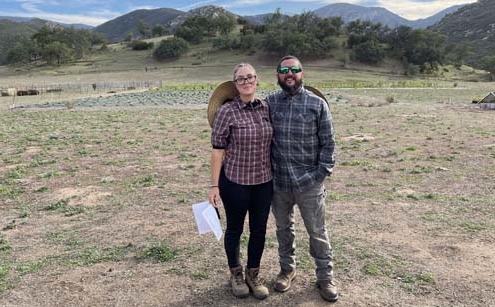
Episode 231. Leave No Trace Farming
Damian Valdez and Jamie Williamson run Lighthouse Herb’n Farm, an organic herb, tea, medicinal plant, and dye-plant operation in eastern San Diego. The farm is located on what is considered Luiseño Payómkawichum native land.
In this episode of Voices from the Field, Jamie and Damian talk with NCAT Sustainable Agriculture Specialist Katherine Favor about their ethic of “leave no trace” — how they farm organically in San Diego’s harsh desert climate in a way that honors this sacred native land, and ensures that it is kept intact for generations to come.
NCAT Sustainable Agriculture Specialist Katherine Favor and Damian Valdez and Jamie Williamson, Lighthouse Herb’n Farm
NCAT Sustainable Agriculture Specialist Katherine Favor and Damian Valdez and Jamie Williamson, Lighthouse Herb’n Farm
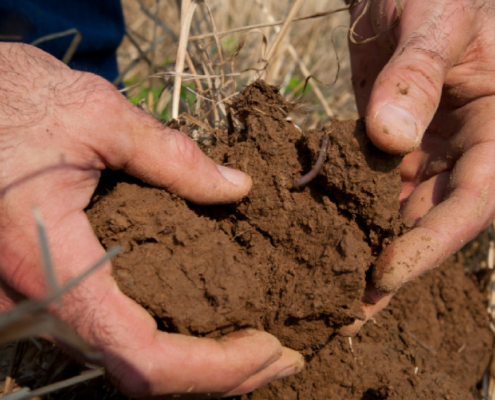
Help Shape Montana’s Soil Health Future
There’s nothing like a summer of vicious heat, drought, and grasshoppers to focus minds on the vital importance of healthy soil. Soil scientist Wallace Fuller said in 1975, “A cloak of loose, soft material, held to the Earth’s hard surface by gravity, is all that lies between life and lifelessness.” Across Montana, the summer of 2021 proved again just how crucial — and how vulnerable — that thin cloak of soil can be. Soil health is foundational to the resilience of land, and thus also to food systems, human health, and ecosystem function.
By Linda Poole, Regenerative Grazing Specialist
By Linda Poole, Regenerative Grazing Specialist
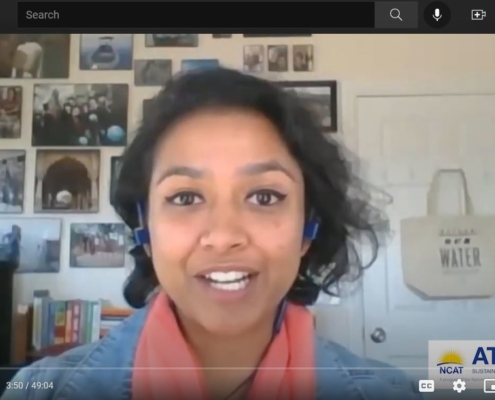
NCAT Releases 19 Soil Health Innovations Videos
“The Soil Health Innovations Conference occupies the cutting edge of soil health across the country – on-farm practices, soil biology, carbon markets, and public policy,” said Steve Thompson, NCAT executive director. “This set of videos adds to NCAT’s trusted knowledgebase and provides a free resource to any producer or land manager working to improve soil conditions.”

Soil Health and Composting with Nina Prater and Matt Casteel
In this webinar, Nina Prater, and NCAT Sustainable Agriculture…
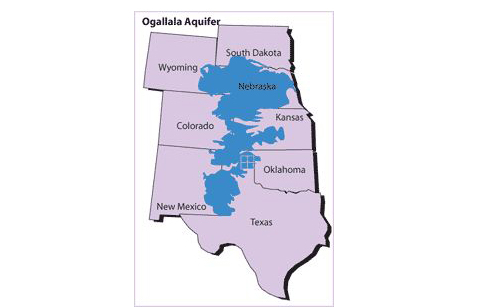
Episode 202. Ag Strategies for Ogallala Aquifer. Part 2
This episode of Voices from the Field is the second of a two-part…

Episode 201. Ag Strategies for Ogallala Aquifer. Part 1
This episode of Voices from the Field is the first of a two-part…

Reflections on NCAT’s First Soil Health Innovations Conference
Everyone has their “thing”—that topic or interest that they just can’t get enough of. That topic that you bore people with at parties (remember parties?) when you talk about it just a little too long. For me, my “thing” is soil. I find the topic of soil so endlessly fascinating, and I get to think about, talk about, teach about, and play with soil as a job and a way of life. I’m lucky enough to be a soil specialist for NCAT and I live on a family farm.
By Nina Prater, NCAT Sustainable Agriculture Specialist
By Nina Prater, NCAT Sustainable Agriculture Specialist
Tag Archive for: Water

Soil Health 101: Principles for Livestock Production
In this webinar, NCAT Sustainable Agriculture Specialist Nina…

Episode 241. NCAT’s Soil for Water Project to Connect a Community of Regenerators
The National Center for Appropriate Technology has officially re-launched its Soil for Water project, opening access to the free, voluntary network to all commercial farmers, ranchers, and land managers across the United States. Soil for Water aims to connect farmers, ranchers, and land managers who are interested in land management practices that improve soil health, catch more water in soil, reduce erosion, sustain diverse plant and animal life, and filter out pollutants all while sustaining a profitable business.
NCAT Communications Director Emilie Ritter Saunders and NCAT Regenerative Grazing Specialist Linda Poole
NCAT Communications Director Emilie Ritter Saunders and NCAT Regenerative Grazing Specialist Linda Poole

Episode 231. Leave No Trace Farming
Damian Valdez and Jamie Williamson run Lighthouse Herb’n Farm, an organic herb, tea, medicinal plant, and dye-plant operation in eastern San Diego. The farm is located on what is considered Luiseño Payómkawichum native land.
In this episode of Voices from the Field, Jamie and Damian talk with NCAT Sustainable Agriculture Specialist Katherine Favor about their ethic of “leave no trace” — how they farm organically in San Diego’s harsh desert climate in a way that honors this sacred native land, and ensures that it is kept intact for generations to come.
NCAT Sustainable Agriculture Specialist Katherine Favor and Damian Valdez and Jamie Williamson, Lighthouse Herb’n Farm
NCAT Sustainable Agriculture Specialist Katherine Favor and Damian Valdez and Jamie Williamson, Lighthouse Herb’n Farm

Help Shape Montana’s Soil Health Future
There’s nothing like a summer of vicious heat, drought, and grasshoppers to focus minds on the vital importance of healthy soil. Soil scientist Wallace Fuller said in 1975, “A cloak of loose, soft material, held to the Earth’s hard surface by gravity, is all that lies between life and lifelessness.” Across Montana, the summer of 2021 proved again just how crucial — and how vulnerable — that thin cloak of soil can be. Soil health is foundational to the resilience of land, and thus also to food systems, human health, and ecosystem function.
By Linda Poole, Regenerative Grazing Specialist
By Linda Poole, Regenerative Grazing Specialist

NCAT Releases 19 Soil Health Innovations Videos
“The Soil Health Innovations Conference occupies the cutting edge of soil health across the country – on-farm practices, soil biology, carbon markets, and public policy,” said Steve Thompson, NCAT executive director. “This set of videos adds to NCAT’s trusted knowledgebase and provides a free resource to any producer or land manager working to improve soil conditions.”

Soil Health and Composting with Nina Prater and Matt Casteel
In this webinar, Nina Prater, and NCAT Sustainable Agriculture…

Episode 202. Ag Strategies for Ogallala Aquifer. Part 2
This episode of Voices from the Field is the second of a two-part…

Episode 201. Ag Strategies for Ogallala Aquifer. Part 1
This episode of Voices from the Field is the first of a two-part…

Reflections on NCAT’s First Soil Health Innovations Conference
Everyone has their “thing”—that topic or interest that they just can’t get enough of. That topic that you bore people with at parties (remember parties?) when you talk about it just a little too long. For me, my “thing” is soil. I find the topic of soil so endlessly fascinating, and I get to think about, talk about, teach about, and play with soil as a job and a way of life. I’m lucky enough to be a soil specialist for NCAT and I live on a family farm.
By Nina Prater, NCAT Sustainable Agriculture Specialist
By Nina Prater, NCAT Sustainable Agriculture Specialist

